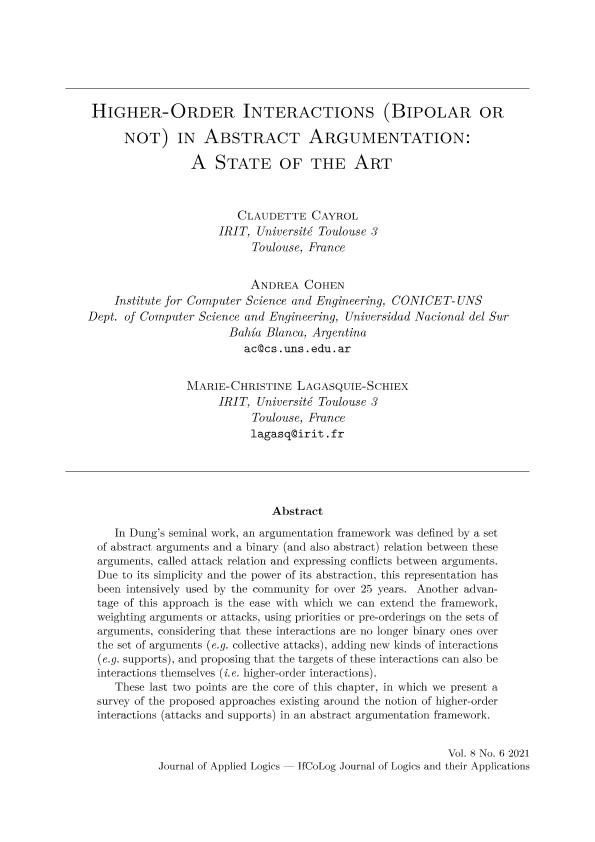Artículo
Higher-Order Interactions (Bipolar or not) in Abstract Argumentation: A State of the Art
Fecha de publicación:
07/2021
Editorial:
College Publications
Revista:
IfCoLog
ISSN:
2631-9810
e-ISSN:
2631-9829
Idioma:
Inglés
Tipo de recurso:
Artículo publicado
Clasificación temática:
Resumen
In Dungs seminal work, an argumentation framework was defined by a set of abstract arguments and a binary (and also abstract) relation between these arguments, called attack relation and expressing conflicts between arguments. Due to its simplicity and the power of its abstraction, this representation has been intensively used by the community for over 25 years. Another advantage of this approach is the ease with which we can extend the framework, weighting arguments or attacks, using priorities or pre-orderings on the sets of arguments, considering that these interactions are no longer binary ones over the set of arguments (e.g. collective attacks), adding new kinds of interactions (e.g. supports), and proposing that the targets of these interactions can also be interactions themselves (i.e. higher-order interactions). These last two points are the core of this chapter, in which we present a survey of the proposed approaches existing around the notion of higher-order interactions (attacks and supports) in an abstract argumentation framework.
Palabras clave:
ABSTRACT ARGUMENTATION
,
BIPOLAR INTERACTIONS
,
HIGHER-ORDER INTERACTIONS
Archivos asociados
Licencia
Identificadores
Colecciones
Articulos (ICIC)
Articulos de INSTITUTO DE CS. E INGENIERIA DE LA COMPUTACION
Articulos de INSTITUTO DE CS. E INGENIERIA DE LA COMPUTACION
Citación
Cayrol, Claudette; Cohen, Andrea; Lagasquie Schiex, Marie Christine; Higher-Order Interactions (Bipolar or not) in Abstract Argumentation: A State of the Art; College Publications; IfCoLog; 8; 6; 7-2021; 1339-1435
Compartir




